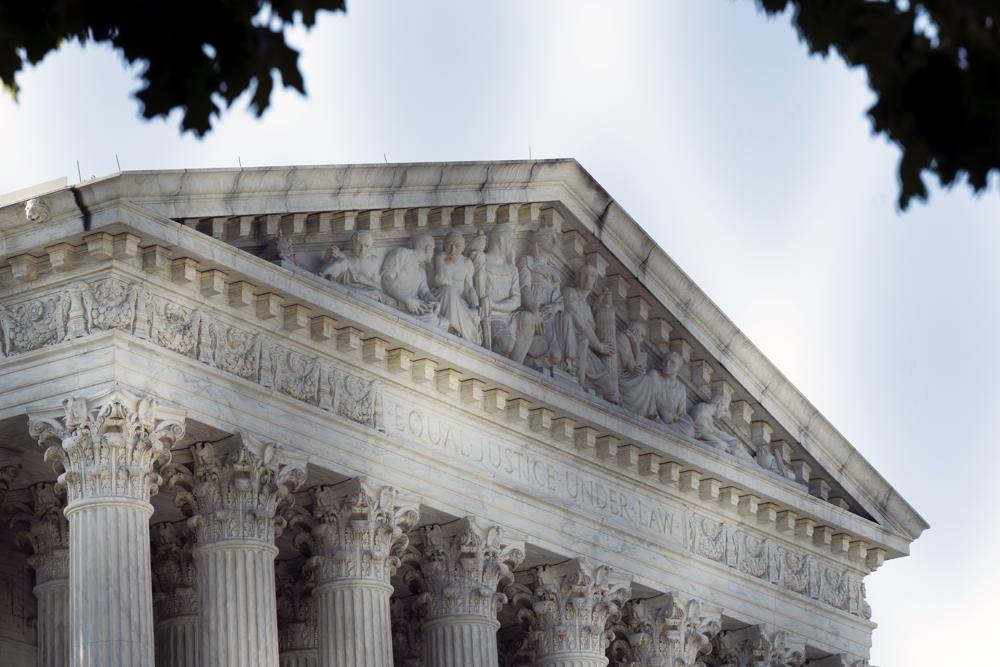The Supreme Court ruled Tuesday that religious schools can’t be excluded from a Maine program that offers tuition aid for private education, a decision that could ease religious organizations’ access to taxpayer money.
The most immediate effect of the court’s 6-3 decision beyond Maine will be next door in Vermont, which has a similar program.
But the outcome also could fuel a renewed push for school choice programs in some of the 18 states that have so far not directed taxpayer money to private, religious education.
Chief Justice John Roberts wrote for a conservative majority that the program violates the Constitution’s protections for religious freedoms.
“Maine’s ‘nonsectarian’ requirement for its otherwise generally available tuition assistance payments violates the Free Exercise Clause of the First Amendment. Regardless of how the benefit and restriction are described, the program operates to identify and exclude otherwise eligible schools on the basis of their religious exercise,” Roberts wrote.
The court’s three liberal justices dissented. “This Court continues to dismantle the wall of separation between church and state that the Framers fought to build,” Justice Sonia Sotomayor wrote.
The ruling is the latest in a line of decisions from the Supreme Court that have favored religion-based discrimination claims. The court is separately weighing the case of a football coach who says he has a First Amendment right to pray at midfield immediately after games.
In largely rural Maine, the state allows families who live in towns that don’t have public schools to receive public tuition dollars to send their children to the public or private school of their choosing. The program has excluded religious schools.
Students who live in a district with public schools or in a district that contracts with another public system are ineligible for the tuition program.
Parents who challenged the program argued that the exclusion of religious schools violates their religious rights under the Constitution. Teacher unions and school boards said states can impose limits on public money for private education without running afoul of religious freedoms.
Most of the justices attended religious schools, and several send or have sent their children to them.
In the Maine case, parents sued in federal court to be able to use state aid to send their children to Christian schools in Bangor and Waterville. The schools in question, Bangor Christian School and Temple Academy, are uncertain whether they would accept public funds, according to court filings.
In 2020, the high court ruled 5-4 that states must give religious schools the same access to public funding that other private schools receive, preserving a Montana scholarship program that had largely benefited students at religious institutions.
In that case, the court said states don’t have to allow public money to be used in private education. But they can’t keep religious schools out of such programs, once created.
But even after that ruling, the 1st U.S. Circuit Court of Appeals upheld the Maine program, holding that the state was not violating anyone’s constitutional rights by refusing to allow taxpayer money to be used for religious instruction. The three-judge panel included retired Justice David Souter, who occasionally hears cases in the appeals court.
Rabbi Abba Cohen, Agudath Israel’s vice president for government affairs and Washington director, hailed the decision. “Agudath Israel has been fighting religious discrimination for decades, and we will continue to do so. We are thrilled that the Supreme Court has made clear that discrimination against religious instruction in state aid programs is a constitutional violation. Other states that have ‘no aid’ provisions in their state constitutions and law can effectively feel free to now enact programs that encourage or provide assistance to religious schools on an equal basis with other nonpublic schools.”
“This is a significant win for parents in Maine and across the country who will now have more freedom to choose private and religious schools for their children,” said Rabbi A. D. Motzen, Agudath Israel of America’s national director of state relations. “Today’s ruling endorses Agudah’s longtime position that states may not bar families from using state aid at the school of their choice simply because they choose a school that includes a religious curriculum.”
(AP/YWN)












7 Responses
& then will taxpayer’s money be able to dictate school to honor משכב-זכר club השם-ירחם as is transpiring right now at YU?
147,
Yes. The private schools in this program are required to follow all state mandates that public schools follow and the same is true for similar programs in Vermont and Connecticut.
No other state has programs like these.
How do any of these programs ever trickle down to the parents. They literally give 7-10K per kid in the UPK program in NYC so you would think tuition will be free or almost free for kindergarten like the akum private schools. But we always come up with some “migu” to charge the parents.
lopman,
These programs in Maine, Vermont, and Connecticut require the schools receiving aid to accept all students without charging them any tuition at all. So it is s very good deal for the parents. The schools lose a lot of their autonomy though as they can no longer be selective in admissions and are required to follow the same state mandates the public schools follow.
The Yeshiva of Volozhin closed because the government ended up to direct the curriculum taught and yeshiva refused to follow it.
@Reb Eliezer, infamous shtoosim. That never actually happened.
Look at England where the Yeshivos and Bais Yackovs receive Government funding. Yes, they need to work around the immoral curriculum requirements and admissions processes. But then look at NY where Yeshivos receive no funding and are being hounded just the same. We pay taxes – Towards education – Let’s make the most of it.
Government funding has no connection with government control. Government has exactly the same power to control schools that it doesn’t fund as it does schools that it does. So not accepting money doesn’t make you safe, it just makes you poor.